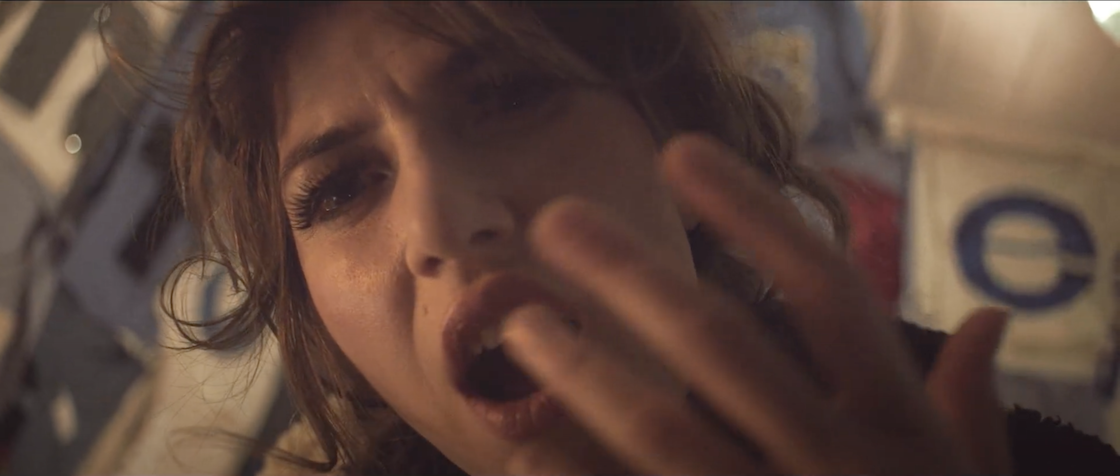I’ve always been drawn to songwriters whose lyrics are too smart for me. I enjoy feeling like I’m in the hands of an artist whose work has layers that are beyond my grasp.
Aldous Harding’s lyrics are often mistaken for absurdism. This was my take at least, when I first heard her 2019 breakthrough track “The Barrel.” Watching the video only furthered that impression, with her surreal costume and choreography bringing focus to offbeat lyrical imagery like “show the ferret to the egg.” It all seemed ridiculous, but in a compelling way. I found myself listening to “The Barrel” on repeat, registering on some level that its simple folk structure was masking something infinitely more intriguing.
At some point I showed Kyla the lyrics of “The Barrel” to see if she could make heads or tails of it. After a few minutes she looked at me and matter-of-factly said, “this is a break-up song.” And of course it is! “You shook at the ivory mantle / As a poet, I knew to be gentle / When you have a child, so begins the braiding / And in that braid you stay.” Once it all clicks (or mostly clicks, I’m still not sure about the ferret), it’s clear you’re hearing about a relationship’s end – you won’t commit to getting married, and I certainly won’t commit to having your kid.
In Pitchfork’s blurb on “Fever” in their Best Songs of 2022 list (where I was pleasantly surprised to see this track at #12), Zach Schonfeld notes that while Harding typically “darts around the edges of narrative and inscrutability,” here her story is relatively direct. And that’s fair – even I got the gist of this one on first listen, as Harding wistfully recounts an eleven-day romance that begins in a hotel lobby. Still, unique turns of phrase and metaphors are everywhere: “You let me in where a mother’d invested,” “The weather opened up like a birthday card / and we forget one will fry if the other’s connected.” Though it’s clearer on the surface, “Fever” is no less evocative than Harding’s more arcane tracks.
Harding tends to use simple folk arrangements that give her lyrics plenty of breathing room. This makes every melodic choice critical, and in her best songs every subtle dynamic shift and chord change help clarify or imbue further meaning on her words. In this sense, “Fever” may be her most successful composition to date; from the creeping G major-to-minor swap that surfaces at key moments in the verses to the unexpectedly extended instrumental break wordlessly representing the end of the affair, “Fever” paints a picture that becomes more and more vivid with each listen.
I’d call Aldous Harding the best pop poet of her generation, but I’m sure I’m not qualified to say so. I can say with confidence though that she’s operating on a level with few peers, and that you fortunately don’t need to be on that same level to get swept away by her songs.
